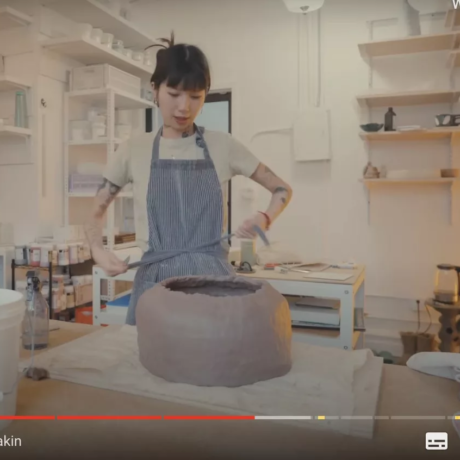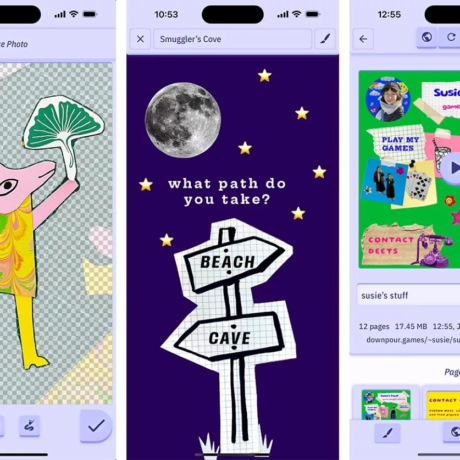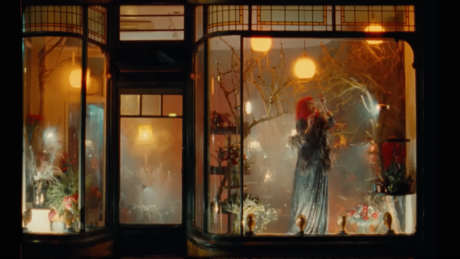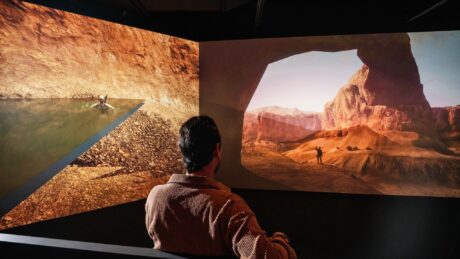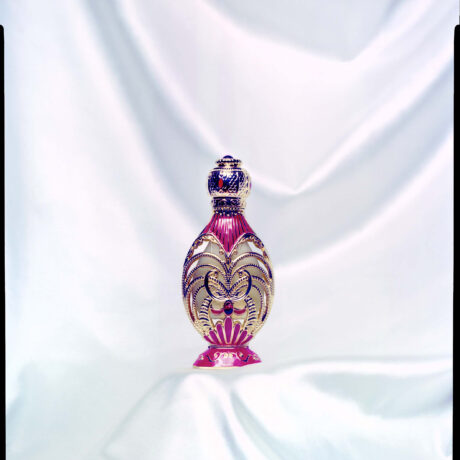In her column ‘Culture at Home’ Gabrielle de la Puente of the White Pube shares her latest finds, focusing on culture best experienced at home. This week, Gabrielle is sharing how to experience the best of indie cinema without leaving the house.
I’ve had a subscription to the tightly curated film streaming service MUBI since I was an art student back in 2016, but I think I’ve only actually paid for it twice. If you invite a friend to join, they get a free month and so do you. I just so happen to be a critic with a readership full of people who like giving weird indie films a chance, so I share the MUBI link every once in a while and pray my readers haven’t lost their appetite for Norwegian auteurs. But in between hunting for freebies, I find myself talking about MUBI all the time, as if it’s this cool girl I know of. Some friend of a friend. She smokes rollies and always smells divine. She has the hook-up to Miranda July’s filmography. She reads philosophy, speaks three languages. She’s got dibs on the online premiere for Shiva Baby. This girl knows every director from every country. No need for bootlegs, she has every film before everyone! And — I’ll stop before this turns into the cinematic equivalent of LCD Soundsystem’s Losing My Edge, but you get the point.
I found myself praising MUBI once again this week after I was invited to speak to the Crafts Council’s book club. I was there to discuss Poor Artists, the new book I co-wrote with Zarina Muhammad. It’s about the impossibility of being an artist in this day and age, which made for a book club conversation about funding, stress, competition — all those good things. Together, we mourned the emotional impact the cost of living crisis is having on the working class and, in particular, its impact on art and personal creativity. As the talk was coming to an end, a reader asked for some advice on how to find inspiration in the face of this bleak, tiring landscape, particularly as someone who has recently had to leave London. MUBI, I said. Cool girl always on my mind. Because who needs easy access to the country’s cultural capital or its creative community and their conversation when you have a hard-won MUBI subscription that takes care of all that inspiration for you? I’ve left the alliteration in there so that you know I’m being insincere; I want it all, but I make do with what I have.
To answer the question: in my experience, inspiration works best when I’m not totally in control of it. I can’t run directly towards the idea I’m trying to have. That’ll scare it off. I have to pretend to being doing something else, and then the idea will fly in from stage left and I’ll pretend I didn’t see it coming. As much as I wish art was fairly expressed throughout the country, and not just concentrated wherever the money is, that’s why living somewhere like London can be so beneficial for artists. There’s something on every day of the week, and even the offies are full of art and fashion mags; inspiration ends up being experienced by osmosis. As someone who spends almost every day resting at home due to chronic fatigue, I really have to seek my inspiration out quite consciously or my mood drops and my writing suffers, and I end up having absolutely nothing to talk about.
So, I might flick through an exhibition catalogue. I’ve been collecting them over the years as a way to visit exhibitions without having to go outside, but it’s also a kind of time-travel. I make sure I always have an audiobook on the go; and I ask bookseller-friends what I should read next instead of reading the easy thing everyone is talking about, not that that’s a bad thing, but I want to feel like I’m moving forward in my own life somehow, and that’s one way of getting there. When it gets to winter, I make a point to listen to multiple ‘Top 50 albums of the year’ lists. This is probably the most disciplined my pursuit of inspiration gets. But it’s just so worth it to have found Indigo de Souza, or Turnstile, or the slow, generous magic of Arooj Aftab. And finally, I hold onto that MUBI subscription for dear life. Cheaper than an ad-free Netflix subscription — and Netflix has given me the ick ever since it decided to autoplay every trailer when you are browsing its collection — I use MUBI to play a game with myself: I watch a film I like the look of, a second film I think will be good for my brain, and a third that I would never usually click on. That way, I make enough space for surprise.

Take this week for example. The film I liked the look of was Reality+, a 22 minute sci-fi short directed by Coralie Fargeat. I recently saw her latest film The Substance, and enjoyed its hyperbolic, tongue-in-cheek fairytale about ageing and beauty. I’m not the type of pub-quiz person who remembers the names of directors but I’d like to be, and Fargeat’s previous stuff is on MUBI. Reality+ was like a ten-year-old draft of The Substance; like a conservationist revealing the sketch under a famous painting. Set in a futuristic Paris, some people are paying to get a chip installed in the back of their neck that allows them to appear as a model for 12 hours, but only to anybody else who also has been chipped. It is like an episode of Black Mirror, or Cinderella if it was science-fiction. There was a lot in there, but it left me thinking about the relationship between class and beauty. There were a few surreal shots of virtual models at work as baristas and carpark attendants, only surreal because beauty seems to protect certain people from capitalist subjugation — and how ludicrous, and revealing, is that.
The second film had to be something good for my brain. Something expanding. Every autumn, I get jealous of people going to university and I have to talk myself out of getting into more student debt by becoming my own teacher. I have been learning Chilean Spanish over iTalki this year, a dialect notoriously difficult to understand because of its clipped, smushed, resistant pronunciation; the Andes, the Atacama, the ice, and the ocean did a good job of protecting indigenous people from colonisers and their languages. But Spanish still made it through, and that violent history is something I’m catching up on. So, I found The Settlers on MUBI, a Chilean film made in 2023, directed by Felipe Gálvez.

Los Colonos was devastating, chronicling the systemic extermination of the Selk’nam people across the Tierra del Fuego by Spanish, American, English and Scottish colonisers who were there to seize land for power and profit. The shots in the film were minimal and the dialogue sparse as I learnt about a genocide that lasted until the early 20th century — late enough to be concurrent with the invention of the film camera. There is a moment halfway through Los Colonos when a Selk’nam family in a shelter are positioned straight to camera, as if posing for a family portrait. It is a distinctly calm, warm scene that takes place moments before they are murdered. It is also mirrored at the end of the film when representatives from the Chilean government stage a very twee family portrait of two surviving Selk’nam. Recording them on large format, and prompting them to drink tea, the government is shown to control an dangerously unreliable historical record. I was left wondering who I can trust when it comes to learning about this country’s violent past.

The final film had to be something I would never usually click on, and for that I chose 2009 American film Humpday, because it had two men on the thumbnail and it looked boring. It wasn’t; it was about two straight men, old college friends, daring each other to have sex on camera for an indie porn festival. It was like a masculinity icebreaker, just so purposefully awkward that I left the film playing on one screen while I procrastinated a lot of busywork on my second one. I always appreciate characters in films who are trying not to be pushovers, and who find this fire in them to course-correct their life on their own terms. But in general, I didn’t really care about Humpday because I’m not an awkward man. That’s fine. As it goes with these things, I might not care about it right now but I know it’s there if I ever need to come back to it — or if I want to recommend it to a friend, or an artist, or a student, and that’s always the best consolation for experiencing art you don’t connect with. At least I got a lot 90 minutes of work done.
I’ll keep going with MUBI but I’m about to try out a National Theatre subscription for another inspo-stream. I’ll leave that for the next column.
Written by Gabrielle de la Puente
